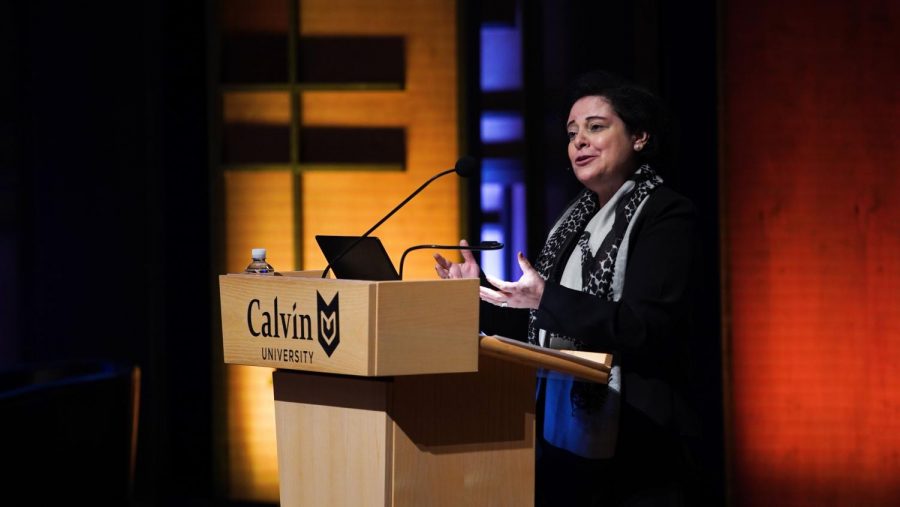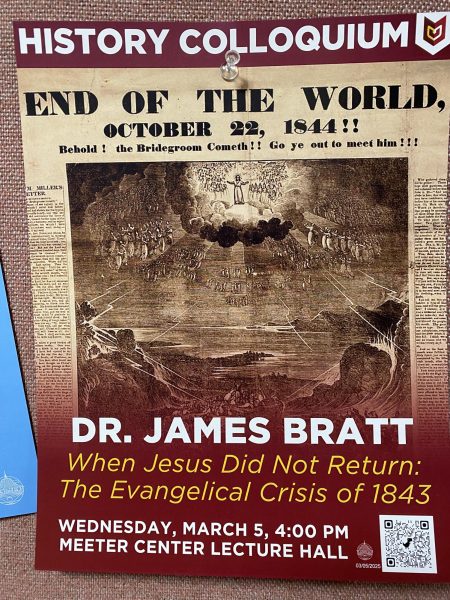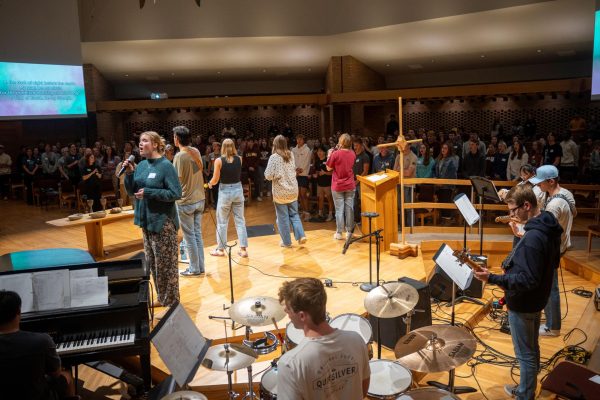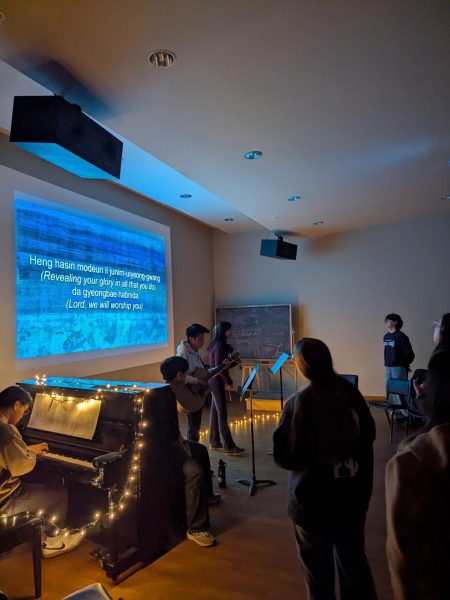Rev. Najla Kassab wraps up January Series
Photo courtesy of Nathan Roels
Najla Kassab discussed six ways in which the Reformed church has an impact in the Middle East.
Reverend Najla Kassab, president of the World Communion of Reformed Churches, brought the January series to a close last Tuesday with a talk about the impacts of the Reformed church in the Middle East.
In a short interview with Chimes following her presentation, Kassab expressed her desire that students become more involved with issues of justice, saying that we need to do more than just think about issues. She suggested taking interest in the experiences of Middle Eastern students as a means of forming a strong community that can help each other interpret world events. If possible, we can also donate to religious causes.
Following prayers, introductions and a reflection on the now-past January Series, Kassab took the stage to discuss the ways that the Reformed church has worked in the Middle East.
The first is the education of women. Kassab explained how, for women in the Middle East, attending school used to be shameful. Now it is the opposite; it’s shameful not to go to school.
The second contribution is education in general and publication. Kassab said, “Helping people to learn is a great message of love.” Similarly, Kassab said that in 1834 Beirut became home to an American Printing Press, which printed the Bible in seven different languages.
The third contribution is social work. Reformed churches have founded several hospitals, led by the American University Hospital in Beirut.
The fourth and final past contribution outlined by Kassab is the ecumenical movement of the Reformed church. “It is very important that churches work together,” she said. “Everyone who knows Christ, and unites in him, is responsible for building the body of Christ.”
Kassab then spoke on current impacts and roles the Reformed church has. The first is “continual reformation.” The Reformed church is called to constantly evaluate how they view the gospel and the ways they worship.
The second impact is accountability. Kassab said that “lay people” should keep their pastors accountable through governing by committee, so that the “priesthood of all believers” can keep the church from slipping into “corruption or stagnation.”
The third impact is pluralism. “Accepting others contributes for a better Middle East,” Kassab said. She advocates for acceptance despite religious differences.
The fourth is the “priesthood of all believers.” “When the church does well, it is because of all of us.”
The fifth role of the Reformed church is encouraging inter-faith dialogue. Kassab used the example of a Syrian church program called “Space for Hope,” in which children of different religions gather to play games.
The final role is to provide moderation against radicalism. “Violence encourages radicalism,” she said. “The more we use violence in the Middle East… the more radical groups grow.”







